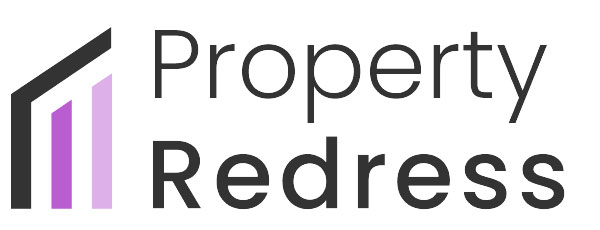The Renters Rights Bill makes a huge difference to renters, giving them more rights than they have had before. Nearly 20% of UK households rent privately, and the changes will affect millions of families. Over the next few weeks, we will hear how each change will come in and when it will apply.
How long can I rent a home for?
Renting a home will change, and instead of a 12-month or 24-month contract, a tenant will be able to rent on a ‘periodic’ or rolling basis. This means if tenants want to stay on, they can.
It also means that if a tenant wants to leave, they can give two months’ notice. This will end the injustice of a tenant being forced to pay rent for a substandard property.
The Renters Rights Bill will only apply to England. Wales and Northern Ireland will still have fixed-term contracts, and Scotland has had periodic agreements since 2017.
There will be a set asking price for a property that is clear from the outset, so no more ‘bidding wars’.
Can a landlord evict a tenant for no reason?
No-fault evictions generally happen when a landlord wants to sell or move into a property. They will not be able to do this within the first 12 months of letting the property; after this, they will need to give 4 months’ notice.
In certain circumstances, landlords will be able to evict tenants if they have damaged the property, been anti-social or failed to pay the rent.
If a landlord gives notice for any of these reasons and the tenant refuses to leave, the matter becomes a court decision.
Further changes to the Bill mean it will no longer be possible to evict a tenant for complaining about poor conditions.
A ‘Decent Homes Standard’ will be introduced, and “Awaab’s Law” which has come into place for social house, will also apply to private landlords at some point in the future. These standards will require hazards, such as mould, to be repaired within a specific period.
When can a landlord increase rent?
Under the new Renters Rights Bill, it will only be possible to increase the rent once a year – and only to the market rate. Landlords will have to give two months’ notice.
If the tenant feels the increase is excessive, it can be challenged before a first-tier tribunal, a type of civil court.
Will the deposit amount change?
There are no changes to the protected deposit schemes, and current rules will still apply. Landlords are not able to request more than 5 weeks’ rent upfront (if the yearly rental is less than £50K), and up to 6 weeks if it is over £50K per year.
Changes for student accommodation
If you live in purpose-built student accommodation, landlords can give two weeks’ notice for a student to leave. This applies to specific institutional providers, such as university-owned accommodation or companies renting to students.
If you are a student renting a house that is multiple-occupation, where the tenancy was agreed at least 6 months before the tenancy started, landlords can evict for new tenancies. Note, more than half the residents need to be students. The landlord must also give four months’ notice.
Rented homes and pets – Renters Rights Bill
Landlords must consider requests to have pets and cannot ‘reasonably’ refuse. Under the new Bill, tenants will be able to challenge ‘unfair decisions’, but your landlord will have the right to require your pet insurance will cover damage to property.
Are there any changes to tenants who receive benefits and have children
Landlords and agents will have the final word on who they will let their property to; it will be illegal for them to discriminate on the grounds of benefit receipt or children.
References and affordability checks will still be carried out as previously.
A cautious response from landlords in Sussex
The new Renters’ Rights Bill has drawn a mixed but cautious response from landlords in Sussex. Many agree that reform of the private rented sector was overdue and welcome the Bill’s intention to improve housing standards, extend protections for tenants, and create a more transparent system. The introduction of a national landlord database, clearer possession grounds, and the ban on bidding wars are seen as steps toward professionalising the industry and promoting fairer relationships between landlords and tenants.
However, there is widespread concern about the practical and financial impact of the proposed changes. The abolition of Section 21 “no-fault” evictions, limits on rent increases, and tighter repair obligations under Awaab’s Law have left many landlords worried about flexibility, rising costs, and their ability to manage properties efficiently. Some warn that these measures could discourage investment, increase compliance burdens, and ultimately reduce the supply of rental homes if smaller landlords choose to exit the market.
Overall, the landlord community’s sentiment is one of wary acceptance rather than enthusiasm. While few dispute the Bill’s social objectives, many are waiting for clarity on implementation timelines and court readiness before judging its success. For now, most landlords are focused on reviewing their portfolios, tightening record-keeping, and preparing for a more regulated and accountability-driven future in the private rental sector.
Overall, greater stability for tenants
For tenants, the Renters’ Rights Bill represents one of the most significant improvements to housing security in decades. By abolishing “no-fault” evictions under Section 21, renters will gain far greater stability in their homes — no longer facing the threat of being asked to leave without reason. All tenancies will become periodic, meaning renters can move on with proper notice. At the same time, landlords must provide valid grounds for possession, giving tenants more control and confidence to plan for the long term.
The Bill also tackles affordability and fairness in the rental market. It restricts rent increases to once per year and introduces stronger mechanisms for tenants to challenge unreasonable rises. The ban on rental bidding wars — where tenants compete by offering above the advertised rent — aims to make pricing more transparent and prevent renters from being priced out during the application process. This shift towards predictable rent and fair advertising is expected to make renting less stressful and more accessible, particularly in high-demand areas.
Significantly, the Bill strengthens tenants’ rights to safe and decent housing. The extension of Awaab’s Law to the private rented sector means landlords must address health hazards such as damp and mould promptly. Combined with the introduction of a national landlord database, tenants will find it easier to identify responsible landlords and hold poor performers accountable. Together, these measures aim to raise standards across the board, including promoting secure, affordable, and healthier living conditions for millions of renters in England.
If you are looking at renting along the coast, please check out our current availability.
If you are a landlord wanting to change your letting agent, please get in touch.
If you would like to hear more on our podcast, you can tune in here: https://youtu.be/mq0AKUo1ChY





